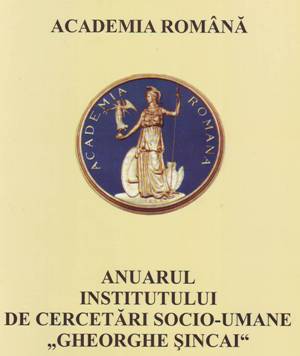Virgil Madgearu şi Grigore Gafencu, intelectuali de formaţie europeană, exponenţi ai strategiei româniei de integrare economică central-europeană
Virgil Madgearu and Grigore Gafencu, Two Intellectuals with a European Formation - Exponents of Romania’s Strategy of Economical Central-European
Author(s): Simion CosteaSubject(s): History
Published by: Institutul de Cercetări Socio-Umane Gheorghe Şincai al Academiei Române
Keywords: Virgil Madgearu; Grigore Gafencu; the inter-war period; Central-European agrarian States
Summary/Abstract: Virgil Madgearu and Grigore Gafencu were among the first Romanian political men in the inter-war period who promoted the idea of Central-European and pan-European integration (beginning with 1924). After they had come to power within the National Peasant Party government (1923-1931), they contributed to raising the idea of European integration at the rank of Romania’s state policy. Madgearu conceived and applied Romania’s strategy concerning the gradual achievement of an economical agreement among the Central-European agrarian States, agreement that had to lead toward the pan-European economical-political integration. In this respect, Madgearu had an important role in structuring the Block of the Agrarian States and in backing The Briand Project at the League of Nations. Madgearu’s purpose was to surpass the economical overproduction crisis from 1929-1933, through selling the surplus of Romania’s cereals to the West-European countries in conditions of preferential custom dues. Grigore Gafencu pointed out the merits of the Romanian government in promoting accurate solutions in the specific economical problems of the country, within the process of European construction to which Romania was participating.
Journal: Anuarul Institutului de Cercetări Socio-Umane »Gheorghe Şincai« al Academiei Române
- Issue Year: 1999
- Issue No: 02
- Page Range: 175-189
- Page Count: 15
- Language: Romanian

